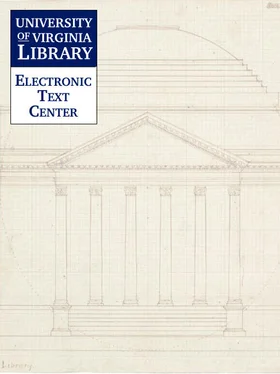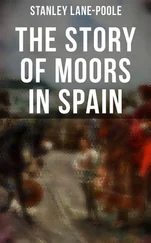Hendrik Loon - The Story of Mankind
Здесь есть возможность читать онлайн «Hendrik Loon - The Story of Mankind» весь текст электронной книги совершенно бесплатно (целиком полную версию без сокращений). В некоторых случаях можно слушать аудио, скачать через торрент в формате fb2 и присутствует краткое содержание. Год выпуска: 2000, Издательство: Electronic Text Center. University of Virginia Library., Жанр: Старинная литература, на английском языке. Описание произведения, (предисловие) а так же отзывы посетителей доступны на портале библиотеки ЛибКат.
- Название:The Story of Mankind
- Автор:
- Издательство:Electronic Text Center. University of Virginia Library.
- Жанр:
- Год:2000
- ISBN:нет данных
- Рейтинг книги:3 / 5. Голосов: 1
-
Избранное:Добавить в избранное
- Отзывы:
-
Ваша оценка:
- 60
- 1
- 2
- 3
- 4
- 5
The Story of Mankind: краткое содержание, описание и аннотация
Предлагаем к чтению аннотацию, описание, краткое содержание или предисловие (зависит от того, что написал сам автор книги «The Story of Mankind»). Если вы не нашли необходимую информацию о книге — напишите в комментариях, мы постараемся отыскать её.
The Story of Mankind — читать онлайн бесплатно полную книгу (весь текст) целиком
Ниже представлен текст книги, разбитый по страницам. Система сохранения места последней прочитанной страницы, позволяет с удобством читать онлайн бесплатно книгу «The Story of Mankind», без необходимости каждый раз заново искать на чём Вы остановились. Поставьте закладку, и сможете в любой момент перейти на страницу, на которой закончили чтение.
Интервал:
Закладка:
The Romans with their boarding-bridges, were the masters of the sea. Hannibal must help himself as best he could. He continued to defeat the Roman armies that were sent out against him, but his own numbers were decreasing rapidly and the Italian peasants held aloof from this self-appointed ``deliverer.''
After many years of uninterrupted victories, Hannibal found himself besieged in the country which he had just conquered. For a moment, the luck seemed to turn. Hasdrubal, his brother, had defeated the Roman armies in Spain. He had crossed the Alps to come to Hannibal's assistance. He sent messengers to the south to tell of his arrival and ask the other army to meet him in the plain of the Tiber. Unfortunately the messengers fell into the hands of the Romans and Hannibal waited in vain for further news until his brother's head, neatly packed in a basket, came rolling into his camp and told him of the fate of the last of the Carthaginian troops.
With Hasdrubal out of the way, young Publius Scipio easily reconquered Spain and four years later the Romans were ready for a final attack upon Carthage. Hannibal was called back. He crossed the African Sea and tried to organise the defences of his home-city. In the year 202 at the battle of Zama, the Carthaginians were defeated. Hannibal fled to Tyre. From there he went to Asia Minor to stir up the Syrians and the Macedonians against Rome. He accomplished very little but his activities among these Asiatic powers gave the Romans an excuse to carry their warfare into the territory of the east and annex the greater part of the Ægean world.
Driven from one city to another, a fugitive without a home, Hannibal at last knew that the end of his ambitious dream had come. His beloved city of Carthage had been ruined by the war. She had been forced to sign a terrible peace. Her navy had been sunk. She had been forbidden to make war without Roman permission. She had been condemned to pay the Romans millions of dollars for endless less years to come. Life offered no hope of a better future. In the year 190 B.C. Hannibal took poison and killed himself.
Forty years later, the Romans forced their last war upon Carthage. Three long years the inhabitants of the old Phoenician colony held out against the power of the new republic. Hunger forced them to surrender. The few men and women who had survived the siege were sold as slaves. The city was set on fire. For two whole weeks the store-houses and the palaces and the great arsenal burned. Then a terrible curse was pronounced upon the blackened ruins and the Roman legions returned to Italy to enjoy their victory.
For the next thousand years, the Mediterranean remained a European sea. But as soon as the Roman Empire had been destroyed, Asia made another attempt to dominate this great inland sea, as you will learn when I tell you about Mohammed.
THE RISE OF ROME
HOW ROME HAPPENED
THE Roman Empire was an accident. No one planned it. It ``happened.'' No famous general or statesman or cut-throat ever got up and said ``Friends, Romans, Citizens, we must found an Empire. Follow me and together we shall conquer all the land from the Gates of Hercules to Mount Taurus.''
Rome produced famous generals and equally distinguished statesmen and cut-throats, and Roman armies fought all over the world. But the Roman empire-making was done without a preconceived plan. The average Roman was a very matter- of-fact citizen. He disliked theories about government. When someone began to recite ``eastward the course of Roman Empire, etc., etc.,'' he hastily left the forum. He just continued to take more and more land because circumstances forced him to do so. He was not driven by ambition or by greed. Both by nature and inclination he was a farmer and wanted to stay at home. But when he was attacked he was obliged to defend himself and when the enemy happened to cross the sea to ask for aid in a distant country then the patient Roman marched many dreary miles to defeat this dangerous foe and when this had been accomplished, he stayed behind to administer his newly conquered provinces lest they fall into the hands of wandering Barbarians and become themselves a menace to Roman safety. It sounds rather complicated and yet to the contemporaries it was so very simple, as you shall see in a moment.
In the year 203 B.C. Scipio had crossed the African Sea and had carried the war into Africa. Carthage had called Hannibal back. Badly supported by his mercenaries, Hannibal had been defeated near Zama. The Romans had asked for his surrender and Hannibal had fled to get aid from the kings of Macedonia and Syria, as I told you in my last chapter.
The rulers of these two countries (remnants of the Empire of Alexander the Great) just then were contemplating an expedition against Egypt. They hoped to divide the rich Nile valley between themselves. The king of Egypt had heard of this and he had asked Rome to come to his support. The stage was set for a number of highly interesting plots and counter- plots. But the Romans, with their lack of imagination, rang the curtain down before the play had been fairly started. Their legions completely defeated the heavy Greek phalanx which was still used by the Macedonians as their battle formation. That happened in the year 197 B.C. at the battle in the plains of Cynoscephalæ, or ``Dogs' Heads,'' in central Thessaly.
The Romans then marched southward to Attica and informed the Greeks that they had come to ``deliver the Hellenes from the Macedonian yoke.'' The Greeks, having learned nothing in their years of semi-slavery, used their new freedom in a most unfortunate way. All the little city-states once more began to quarrel with each other as they had done in the good old days. The Romans, who had little understanding and less love for these silly bickerings of a race which they rather despised, showed great forebearance. But tiring of these endless dissensions they lost patience, invaded Greece, burned down Corinth (to ``encourage the other Greeks'') and sent a Roman governor to Athens to rule this turbulent province. In this way, Macedonia and Greece became buffer states which protected Rome's eastern frontier.
Meanwhile right across the Hellespont lay the Kingdom of Syria, and Antiochus III, who ruled that vast land, had shown great eagerness when his distinguished guest, General Hannibal, explained to him how easy it would be to invade Italy and sack the city of Rome.
Lucius Scipio, a brother of Scipio the African fighter who had defeated Hannibal and his Carthaginians at Zama, was sent to Asia Minor. He destroyed the armies of the Syrian king near Magnesia (in the year 190 B.C.) Shortly afterwards, Antiochus was lynched by his own people. Asia Minor became a Roman protectorate and the small City-Republic of Rome was mistress of most of the lands which bordered upon the Mediterranean.
THE ROMAN EMPIRE
HOW THE REPUBLIC OF ROME AFTER CENTURIES OF UNREST AND REVOLUTION BECAME AN EMPIRE
WHEN the Roman armies returned from these many victorious campaigns, they were received with great jubilation. Alas and alack! this sudden glory did not make the country any happier. On the contrary. The endless campaigns had ruined the farmers who had been obliged to do the hard work of Empire making. It had placed too much power in the hands of the successful generals (and their private friends) who had used the war as an excuse for wholesale robbery.
The old Roman Republic had been proud of the simplicity which had characterised the lives of her famous men. The new Republic felt ashamed of the shabby coats and the high principles which had been fashionable in the days of its grandfathers. It became a land of rich people ruled by rich people for the benefit of rich people. As such it was doomed to disastrous failure, as I shall now tell you.
Within less than a century and a half. Rome had become the mistress of practically all the land around the Mediterranean. In those early days of history a prisoner of war lost his freedom and became a slave. The Roman regarded war as a very serious business and he showed no mercy to a conquered foe. After the fall of Carthage, the Carthaginian women and children were sold into bondage together with their own slaves. And a like fate awaited the obstinate inhabitants of Greece and Macedonia and Spain and Syria when they dared to revolt against the Roman power.
Читать дальшеИнтервал:
Закладка:
Похожие книги на «The Story of Mankind»
Представляем Вашему вниманию похожие книги на «The Story of Mankind» списком для выбора. Мы отобрали схожую по названию и смыслу литературу в надежде предоставить читателям больше вариантов отыскать новые, интересные, ещё непрочитанные произведения.
Обсуждение, отзывы о книге «The Story of Mankind» и просто собственные мнения читателей. Оставьте ваши комментарии, напишите, что Вы думаете о произведении, его смысле или главных героях. Укажите что конкретно понравилось, а что нет, и почему Вы так считаете.












